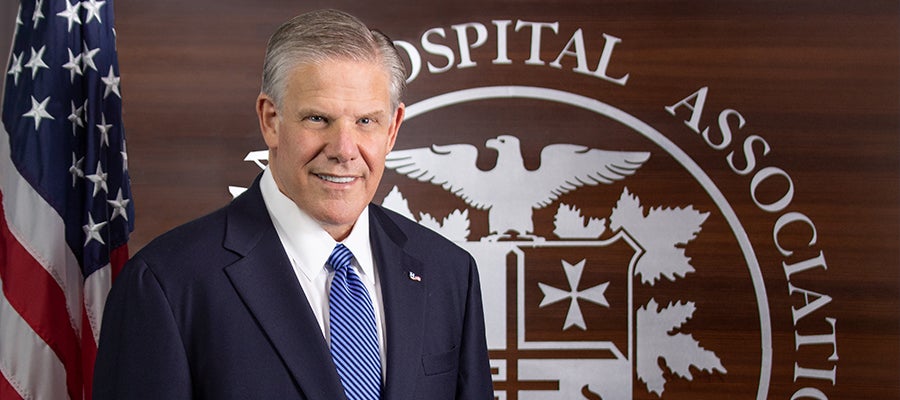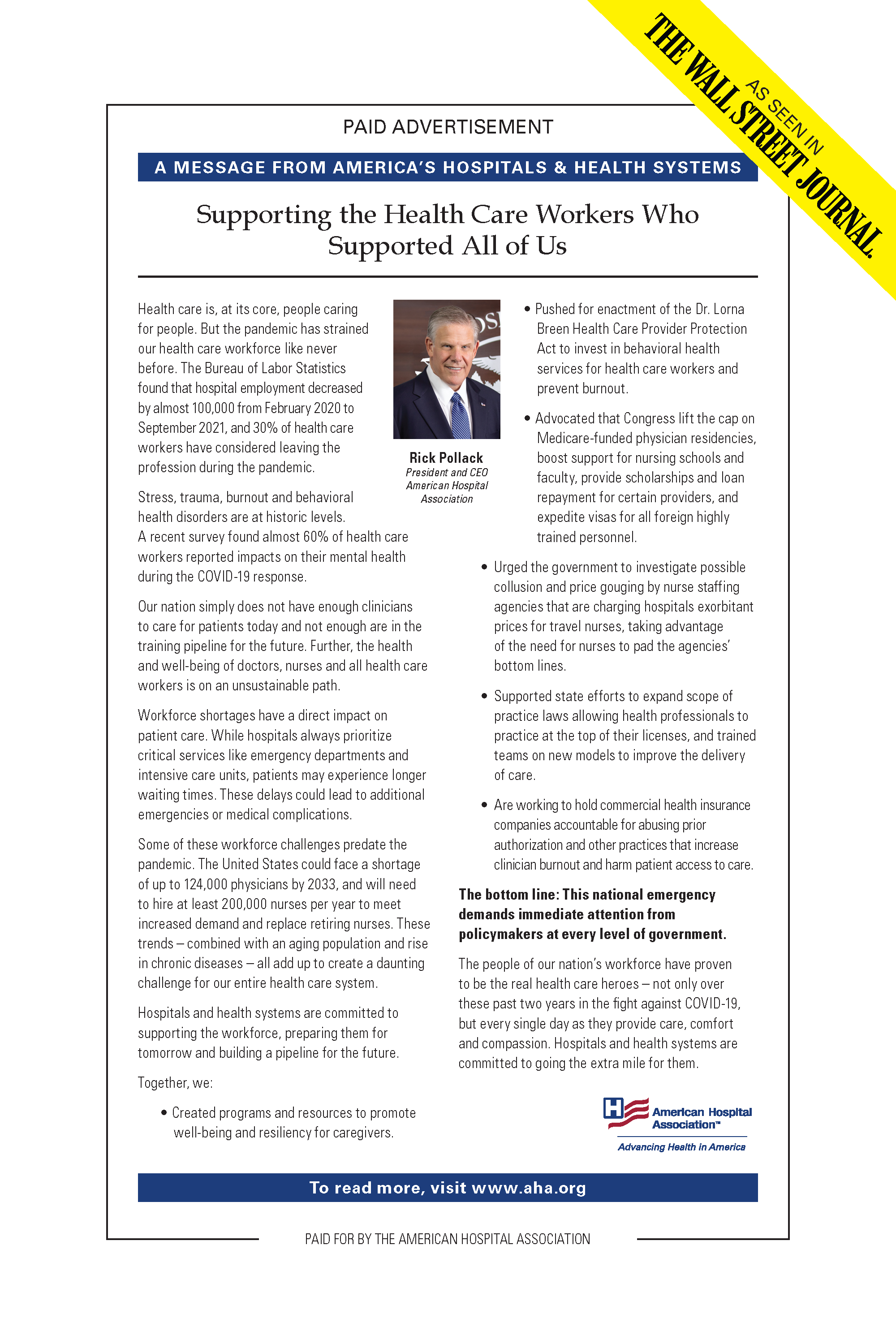

Supporting the Health Care Workers Who Supported All of Us
A Message from America's Hospitals & Health Systems
As Seen in The Wall Street Journal
Health care is, at its core, people caring for people. But the pandemic has strained our health care workforce like never before. The Bureau of Labor Statistics found that hospital employment decreased by almost 100,000 from February 2020 to September 2021, and 30% of health care workers have considered leaving the profession during the pandemic.
Stress, trauma, burnout and behavioral health disorders are at historic levels. A recent survey found almost 60% of health care workers reported impacts on their mental health during the COVID-19 response.
Our nation simply does not have enough clinicians to care for patients today and not enough are in the training pipeline for the future. Further, the health and well-being of doctors, nurses and all health care workers is on an unsustainable path.
Workforce shortages have a direct impact on patient care. While hospitals always prioritize critical services like emergency departments and intensive care units, patients may experience longer waiting times. These delays could lead to additional emergencies or medical complications.
Some of these workforce challenges predate the pandemic. The United States could face a shortage of up to 124,000 physicians by 2033, and will need to hire at least 200,000 nurses per year to meet increased demand and replace retiring nurses. These trends – combined with an aging population and rise in chronic diseases – all add up to create a daunting challenge for our entire health care system.
Hospitals and health systems are committed to supporting the workforce, preparing them for tomorrow and building a pipeline for the future.
Together, we:
- Created programs and resources to promote well-being and resiliency for caregivers.
- Pushed for enactment of the Dr. Lorna Breen Health Care Provider Protection Act to invest in behavioral health services for health care workers and prevent burnout.
- Advocated that Congress lift the cap on Medicare-funded physician residencies, boost support for nursing schools and faculty, provide scholarships and loan repayment for certain providers, and expedite visas for all foreign highly trained personnel.
- Urged the government to investigate possible collusion and price gouging by nurse staffing agencies that are charging hospitals exorbitant prices for travel nurses, taking advantage of the need for nurses to pad the agencies’ bottom lines.
- Supported state efforts to expand scope of practice laws allowing health professionals to practice at the top of their licenses, and trained teams on new models to improve the delivery of care.
- Are working to hold commercial health insurance companies accountable for abusing prior authorization and other practices that increase clinician burnout and harm patient access to care.
The bottom line: This national emergency demands immediate attention from policymakers at every level of government.
The people of our nation’s workforce have proven to be the real health care heroes – not only over these past two years in the fight against COVID-19, but every single day as they provide care, comfort and compassion. Hospitals and health systems are committed to going the extra mile for them.


